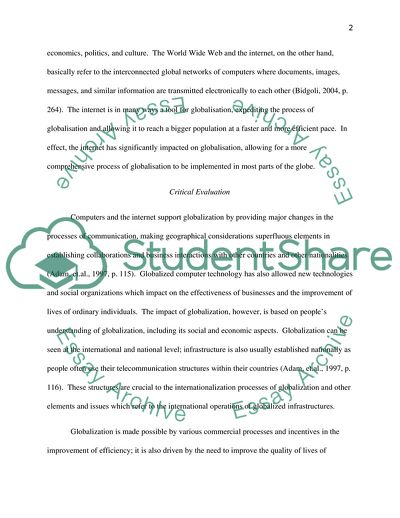Cite this document
(The Extent to which the World Wide Web and the Internet have Affected Globalisation Assignment Example | Topics and Well Written Essays - 2250 words, n.d.)
The Extent to which the World Wide Web and the Internet have Affected Globalisation Assignment Example | Topics and Well Written Essays - 2250 words. https://studentshare.org/media/1772210-write-one-essay-of-2000-2500-words-you-can-find-the-topics-in-the-order-instructions
The Extent to which the World Wide Web and the Internet have Affected Globalisation Assignment Example | Topics and Well Written Essays - 2250 words. https://studentshare.org/media/1772210-write-one-essay-of-2000-2500-words-you-can-find-the-topics-in-the-order-instructions
(The Extent to Which the World Wide Web and the Internet Have Affected Globalisation Assignment Example | Topics and Well Written Essays - 2250 Words)
The Extent to Which the World Wide Web and the Internet Have Affected Globalisation Assignment Example | Topics and Well Written Essays - 2250 Words. https://studentshare.org/media/1772210-write-one-essay-of-2000-2500-words-you-can-find-the-topics-in-the-order-instructions.
The Extent to Which the World Wide Web and the Internet Have Affected Globalisation Assignment Example | Topics and Well Written Essays - 2250 Words. https://studentshare.org/media/1772210-write-one-essay-of-2000-2500-words-you-can-find-the-topics-in-the-order-instructions.
“The Extent to Which the World Wide Web and the Internet Have Affected Globalisation Assignment Example | Topics and Well Written Essays - 2250 Words”. https://studentshare.org/media/1772210-write-one-essay-of-2000-2500-words-you-can-find-the-topics-in-the-order-instructions.


